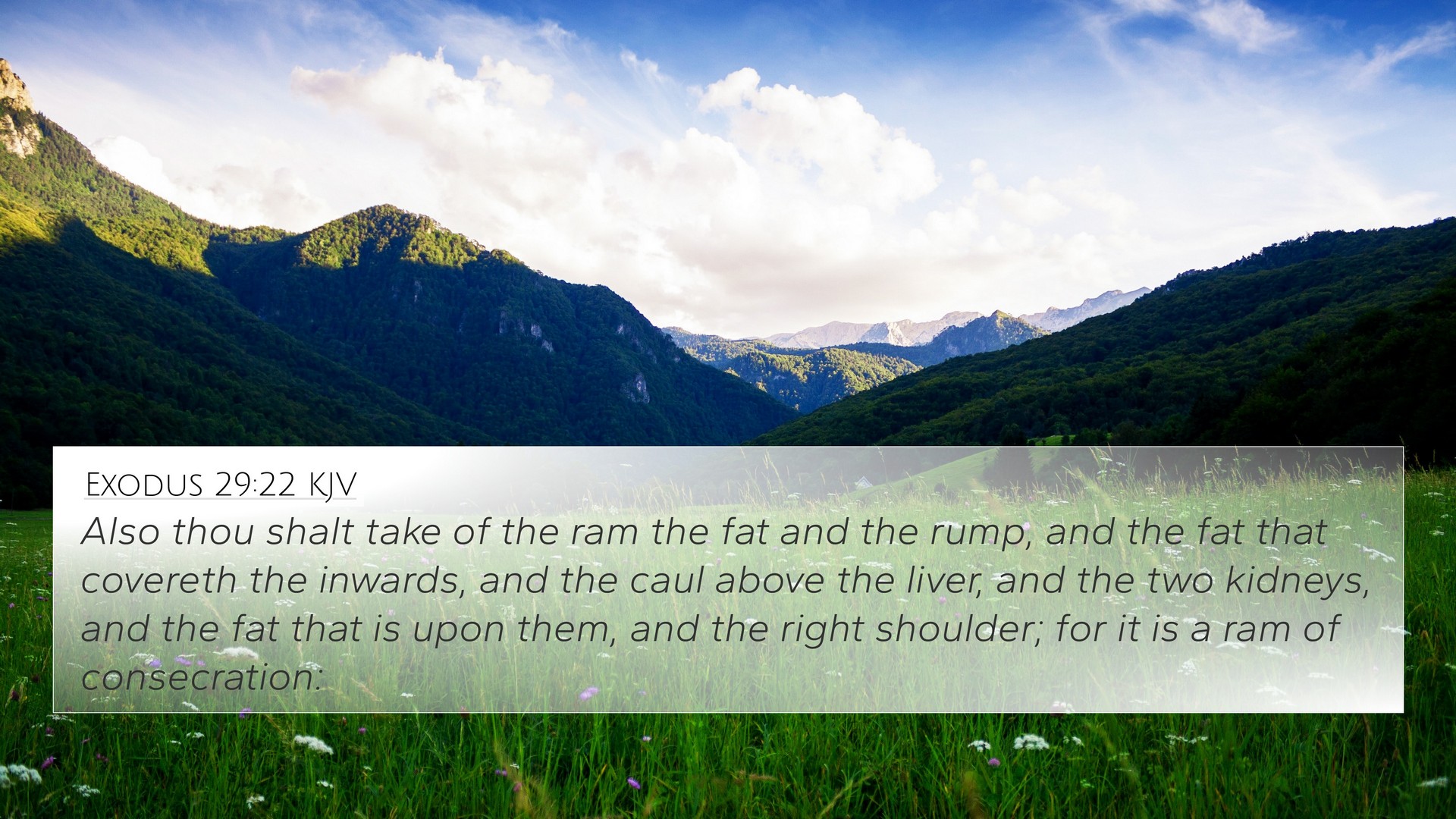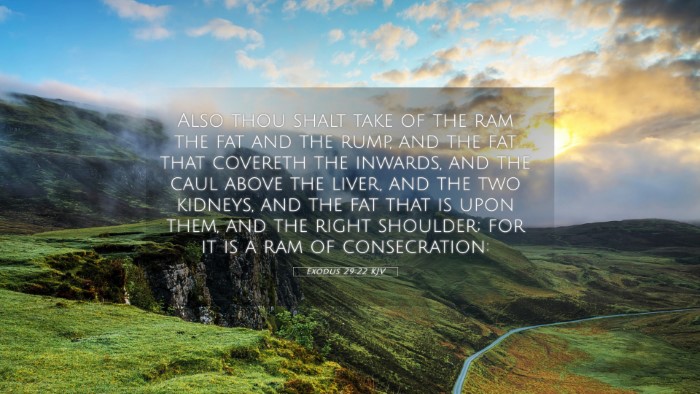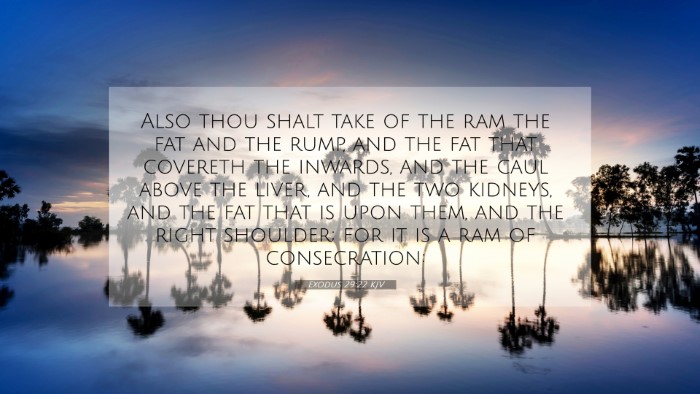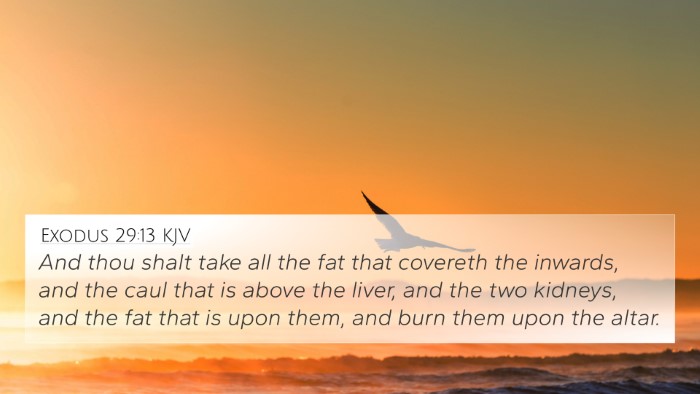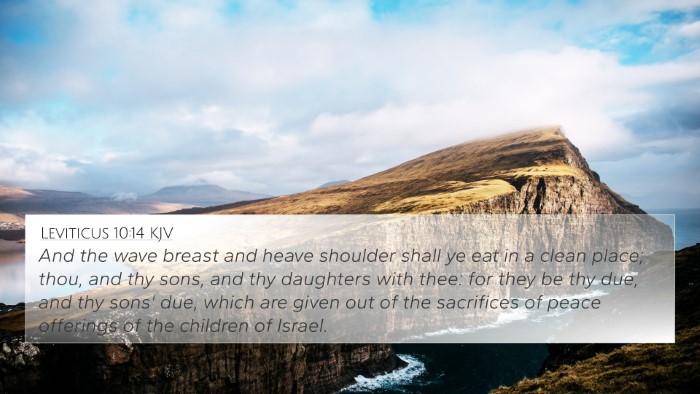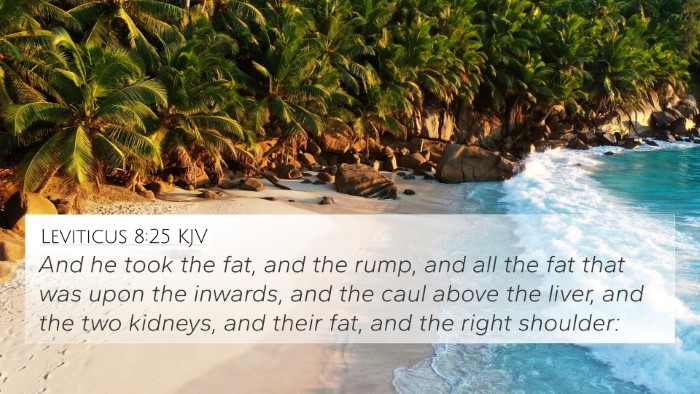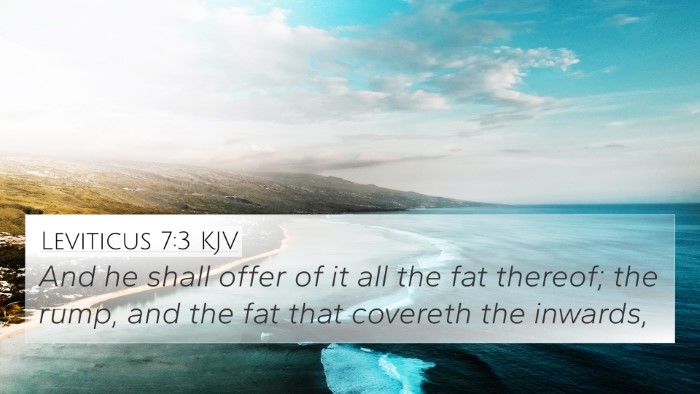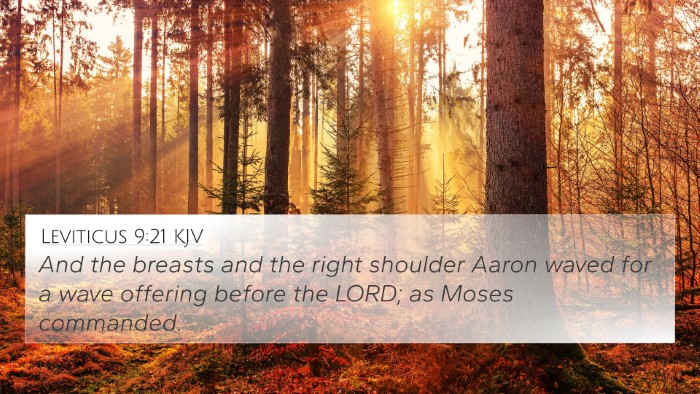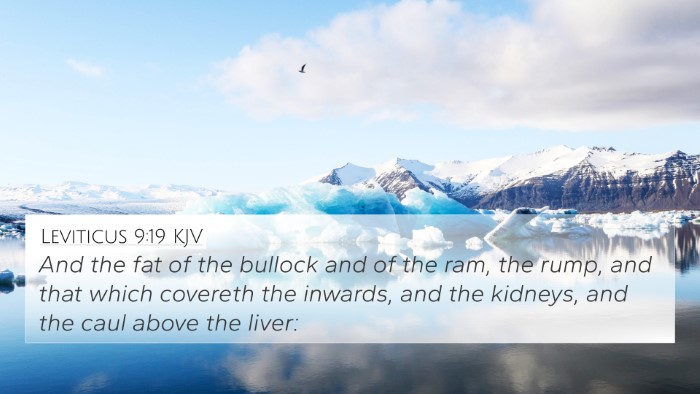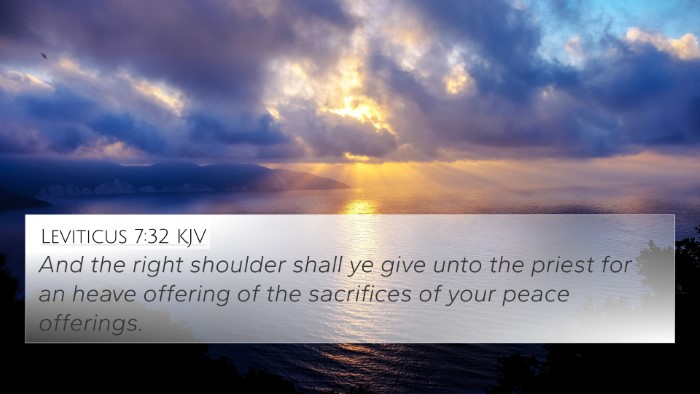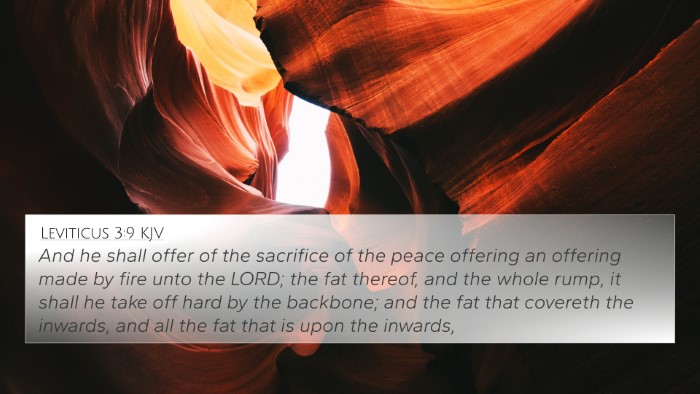Exodus 29:22 - Meaning and Interpretation
Verse: "Also you shall take the fat of the ram, and the fat of the tail, and the fat that covers the entrails, and the long lobe of the liver, and the two kidneys, and the fat that is on them, and the right thigh; it is a ram of ordination."
Summary of Insights
The verse Exodus 29:22 details specific offerings required during the ceremonial ordination of Aaron and his sons as priests. This passage emphasizes the importance of ritual and sacrifice in establishing priestly duties and the symbolic meanings behind the offerings.
Commentary Insights
- Matthew Henry: Henry highlights the significance of the offerings as symbols of God's acceptance and the seriousness of the priestly role. He points out that every part of the offering corresponds to specific aspects of dedication to God.
- Albert Barnes: Barnes elaborates on the components of the offering, explaining that they represent the best and choicest portions, underscoring the reverence deserved in worship and service to God. It indicates a deep relationship between sacrifice and divine favor.
- Adam Clarke: Clarke emphasizes the symbolic meanings of the fat in biblical offerings, typically related to richness and abundance. He explains that this verse illustrates the importance of giving God the best of what one has in a covenant relationship.
Theological Significance
Exodus 29:22 can be viewed as a precursor to understanding the relationship between sacrifice and atonement, which is expanded upon in the New Testament. This passage sets the framework for comprehending Jesus Christ's ultimate sacrifice.
Related Bible Cross-References
- Leviticus 3:16-17: Discusses the fat of the peace offerings being an eternal statute.
- Hebrews 10:1-4: Illustrates the insufficiency of animal sacrifices compared to Christ's sacrifice.
- Romans 12:1: Calls believers to present themselves as living sacrifices, linking to the idea of dedication found in Exodus 29.
- 1 Peter 2:9: Refers to believers as a royal priesthood, echoing the theme of ordination.
- Acts 10:9-16: Peter's vision of clean and unclean animals, expanding the understanding of sacrificial law.
- Matthew 5:23-24: Teaching on the importance of reconciliation before offering gifts to God.
- Exodus 30:10: The annual atonement associated with the sacrificial system.
Application and Conclusion
The elements of sacrifice described in Exodus 29:22 have rich implications in both the Old and New Testaments, providing a means to explore connections between Bible verses. Understanding this verse fosters a deeper appreciation of the nature of worship, sacrifice, and the holiness of the priesthood.
Utilizing Bible cross-referencing tools and Bible concordances can aid in finding connections between Bible verses and enhancing one’s study and understanding of scripture.
Exploring Thematic Connections
In Bible studies, it’s valuable to carry out a comparative Bible verse analysis that links this verse to its surrounding context and relates to themes of sacrifice, holiness, and atonement, providing a more comprehensive understanding of scriptural messages.
